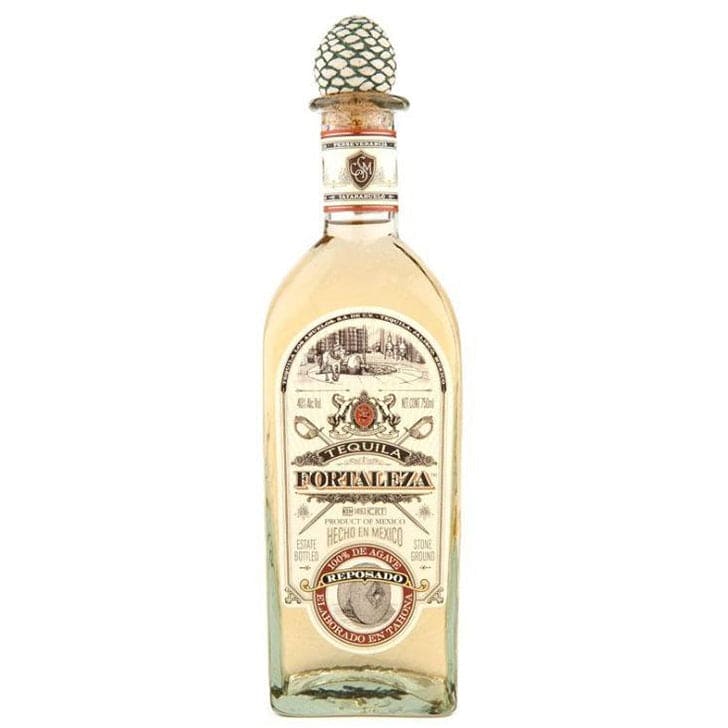
Fortaleza Reposado Tequila
Production Details
NOM: 1493
Agave Source: Tequila Valley
Cooking Method: Stone/brick oven
Crushing Method: 100% stone crushed
Distillation: Double Distilled
Pot Style: Copper pots
Proof: 80 (40% abv)
Fermentation: Open-air wood tanks
Sugars: 100% agave
Water Source: Natural Spring (Tequila Valley)
Bottles: Hand-blown in Mexico
Aging: Each lot individually aged in American Oak. Aging statement on bottle.
People say…
“Without question, one of the best tequilas ever made. When we run out of this at home we immediately replace it.”
– Grover Sanschagrin / Founder, Tequila Matchmaker
Tasting Notes
Aromas of citrus, caramel, butter, cooked agave, and sage are the beginning of a pleasingly balanced and very unique tasting experience. Fortaleza Reposado has it’s own distinct character, and is not like any other tequila.
Flavors include cooked agave, citrus, vanilla, apple, earth, and cinnamon. The finish is long and rich, delicately spicy, and it has an oily texture that make this a joy to drink.
You simply cannot go wrong with Fortaleza Reposado. It’s popular with beginners and experienced tequila drinkers alike.

Explore a World of Spirits and Liquor through our Comprehensive FAQ Section.
Discover a World of Spirits and Liquor in our Helpful FAQ Section.
Types of Spirits
- Whiskey: Made from fermented grain mash and aged in wooden casks.
- Vodka: Typically distilled from grains or potatoes and known for its clear, neutral flavor.
- Rum: Produced from sugarcane byproducts like molasses or sugarcane juice.
- Tequila: Made from the blue agave plant, primarily in the area surrounding Tequila, Mexico.
- Gin: Distilled with botanicals, primarily juniper berries, giving it a distinctive flavor.
Production Process
- Fermentation: The process where yeast converts sugars into alcohol.
- Distillation: Separating alcohol from the fermented mixture to increase its concentration.
- Aging: Storing spirits in barrels to develop flavors over time.
Tasting and Pairing
- Tasting Notes: Learn to identify different aromas, flavors, and textures.
- Food Pairings: Discover which spirits complement various dishes, enhancing the dining experience.
Cocktails and Mixology
- Classic Cocktails: Recipes and techniques for making popular drinks like the Old Fashioned, Martini, and Mojito.
- Mixology Tips: How to balance flavors and create your own cocktail recipes.
History and Culture
Origins: The historical background of different spirits.
Cultural Significance: How spirits are enjoyed and celebrated around the world.

